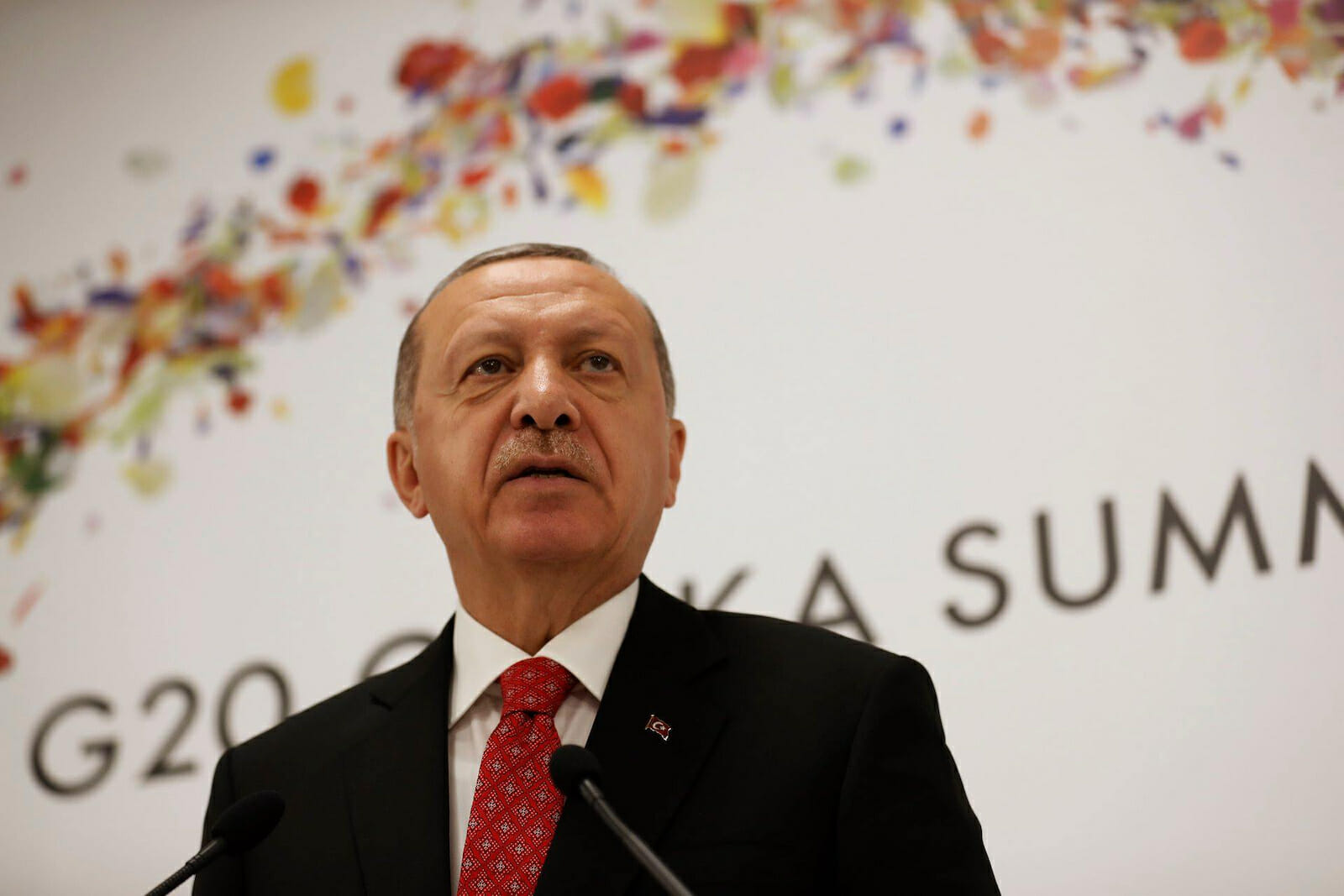
Is Turkey Seeking a New Ottoman Empire?
With the gradual withdrawal of the United States from the Middle East, a power vacuum has opened, and Turkey, due to its physical location, its natural resources, and its large economy has emerged as one of the conventional regional powers in the Eastern Mediterranean. Under Turkish President Recep Tayyip Erdoğan, Turkey, using its position on the island of Cyprus, has challenged Israel, Greece, and Egypt for access to the abundant natural gas fields in the Mediterranean Sea. Prior to the discovery of these natural gas fields, Egypt in 2003 had reached an agreement with the government of Cyprus on a line delineating their respective Exclusive Economic Zones.
After the discovery of a major natural gas find, Turkey claimed Block 3 of the area detailed in the agreement between Egypt and Cyprus as its own and has used naval forces to enforce its claim. Further discoveries have propelled the establishment of the EastMed Gas Forum, which Turkey is not a member of. Watching all of this is Russia, as these new natural gas discoveries threatens Russian natural gas interests in the European Union.
Turkey has also involved itself in the war in Syria, at times allying itself with Russia in defense of what it calls its concerns over the Kurdish population in eastern Syria.
At the same time, Turkey has become involved in the Libyan Civil War, allying itself with the UN-backed Government of National Accord. In return for Turkey’s help, the Government of National Accord signed a Maritime Boundary Treaty with Ankara which conflicts with the EEZs of other countries, particularly Egypt and Israel. With Turkey occupying the strategically important Anatolian Peninsula, it is in a topographical advantage and is using this advantage to increase its geopolitical power against other countries in the area.
The Anatolian Peninsula
Since ancient times, the Anatolian Peninsula has been a strategic location and has played an important role in the development of civilization, and the rise of empires. The Anatolian Peninsula has been a central fixture where the West meets the East. With the collapse of the Ottoman Empire at the end of World War 1, the nation known as Turkey emerged.
At the end of the First World War, the former Ottoman Empire was occupied by the allied powers of Greece, the United Kingdom, France, and Italy. From 1918 until the conclusion of the Turkish War of Independence in 1922, what is now known as Turkey was occupied and the former Empire split into several new nations under the pre-war allied agreement called Sykes-Picot.
The nations of Syria, Palestine, now Israel, Jordan, Saudi Arabia, Yemen, and Lebanon survive. One was absorbed by Saudi Arabia and no longer exists.
The leader of the Turks against the victors of World War 1 was Mustafa Kemal Atatürk, a celebrated military commander in World War 1. Atatürk, overwhelmingly elected as the first president of Turkey, undertook sweeping economic and cultural reforms that transformed Turkey from a backward nation steeped in theocracy into a modern secular state. From the time of Atatürk’s death in 1938, Turkey struggled economically as various economic reforms hampered the country from achieving its full economic potential. However, since the 1980s, and Turkey’s embrace of open market policies, the Turkish economy has mostly boomed but has recently faced setbacks.
Erdoğan and the Sword of Osman
Recep Tayyip Erdoğan has been able to consolidate his power politically in Turkey since a coup attempt in July of 2016. Elected president in 2014, and since re-elected in 2018, Erdoğan has a strong Islamist background and is a self-described social conservative.
In 1987, Turkey had applied for admission into what was then the Common Market. These talks were carried over with the establishment of the European Union. Under Erdoğan, talks between the EU and Turkey have stalled with the EU accusing Turkey of violating human rights and a deficit under the rule of law as defined by the EU Constitution. On 26 June 2018, the EU’s General Affairs Council declared that Turkey has been moving away from the European Union and no further talks of accession have been scheduled. Yet despite the growing issues separating the EU and Turkey, the EU cannot afford to grow too distant from Turkey as Turkey is a natural blocking point stopping the endless migrations of refugees trying to enter Europe. On Turkey’s part, the recent slowdown in the Turkish economy increases the need for Turkey to have access to European financial markets for capital investments to help Turkey maintain a stable economy.
In 2006, Rear Admiral Cem Gürdeniz of the Turkish navy, not retired, coined the phrase “Blue Homeland Doctrine” which challenges directly the political boundaries established by the Allies at the end of World War 1. The new doctrine shows Turkey’s determination to expand its control of the vast and rich natural gas resources of the island of Cyprus. In an article published by the Financial Times, Turkey is using its navy to challenge the exploration ships by the EastMed Gas Forum. The EU’s top diplomat was recently photographed with the Cyprus defense minister flying over the disputed area, displaying the EU’s opposition to Turkey’s claim to the natural gas fields that are so vital to the European Union.
President Erdoğan has openly embraced the Blue Homeland Doctrine and his foreign policy initiatives have been described as neo-Ottomanism.
Under Erdoğan’s leadership, Turkey has purchased the S-400 Air Defense System from Russia and has lost its ability to purchase the F-35 fighter jet from the United States. Turkey’s relationship to Russia is complicated and at times confused. Turkey is trying to seek other suppliers of modern weapons but because of its history with Russia still remains wary. Turkey has been expanding its economic ties to China but resents the treatment of Muslims in China.
While Erdoğan has moved away from NATO to a certain extent, he still allows the United States to maintain an airbase at Incirlik. The United States stores nuclear weapons at the airbase, and the airbase has some 50 B61 gravity atom bombs.
With Erdoğan’s geopolitical aggressiveness, coupled with the gradual withdrawal of the United States in that area of the world, it would appear that Erdoğan harbors thoughts of reaching for the Sword of Osman and establishing Turkey as the dominant economic and military power in that part of the world.
Turkey has Hinted at Obtaining Nuclear Weapons
While Turkey has been modernizing its military, it still faces the cold fact that while Israel has nuclear weapons, and Turkey does not.
On July 15, 2019, President Erdoğan while addressing his supporters, declared that it was unacceptable that non-nuclear-armed states are unable to acquire their own nuclear weapons. Erdoğan was quoted as saying: “Some countries have nuclear warheads, not one or two. But they tell us we cannot have them. This, I cannot accept.”
There has been some speculation that Turkey might be able to acquire a tactical nuke from Pakistan, but this has just been pure speculation.
Nonetheless, if Turkey is to continue to attempt to expand its influence in the Eastern Mediterranean, in order to successfully counter Israel’s nuclear weapons, Turkey must acquire its own nuclear weapons. If Turkey does not, it cannot prevail in any confrontation with the other nations who are tactically allied with Israel in the dispute over the natural gas deposits near Cyprus.
And in order for him to accomplish this, he must increase the power of his military by obtaining nuclear weapons or reach a political and military accommodation with Israel and Egypt over the natural gas reserves just off of Cyprus.

